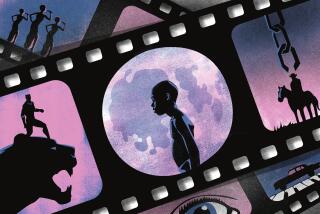ORIGINS OF THE BIRTH OF A NATION
- Share via
Alfred L. Ginepra Jr. is right in his Nov. 13 letter to Book Review: The author of “The Clansman” is indeed Thomas Dixon Jr. In all his other specifics, Ginepra is wrong. “The Clansman” play as source for “The Birth of a Nation” is mentioned by Lewis Jacobs in “The Rise of the American Film” (1939) and by subsequent authors including Richard Schickel in the best biography of its subject, “D. W. Griffith: An American Life” (1984). Schickel discusses the success of Dixon’s rabid anti-Negro reconstruction novel “The Leopard’s Spots” and how Dixon reworked and expanded it into the novel “The Clansman.” On Page 80, Schickel describes “a dramatic version of ‘The Leopard’s Spots’ and ‘The Clansman’ under the latter title.” It toured successfully in the South and Midwest for several months before opening in New York to bad reviews, according to Schickel; yet, it was a considerable commercial success, with two touring companies on the road for nearly five years. The specific material from “The Leopard’s Spots” which found its way into “The Birth of a Nation” is just the scene described by Gary Nash: Gus’ attack on Flora.
Actually my point has little to do with “The Birth of a Nation” but much to do with Nash’s essay “The Killing of ‘Birth of Nation’ ” (Book Review, Oct. 16). Nash used the occasion of Eric Foner’s book to again recite the same old cant about “The Birth of a Nation.” Book Review awarded its headline to this tangent. Nash is a professor of history, yet almost everything he writes is wrong: He messes up the author, the title, the descriptions, the statistics. How is one to trust the conclusions of a historian who is mistaken on so many verifiable facts? If Nash were a dentist rather than a historian, I would not want his drill in my mouth.
Of course I am aware of the ethical issues raised by Griffith’s film, but they are not what Ginepra elegantly describes as “the doughnut” in this instance. The main point is that Eric Foner’s book deserved much better than it got from Nash.
DAVID H. SHEPARD
School of Cinema-Television
USC
More to Read
Sign up for our Book Club newsletter
Get the latest news, events and more from the Los Angeles Times Book Club, and help us get L.A. reading and talking.
You may occasionally receive promotional content from the Los Angeles Times.








